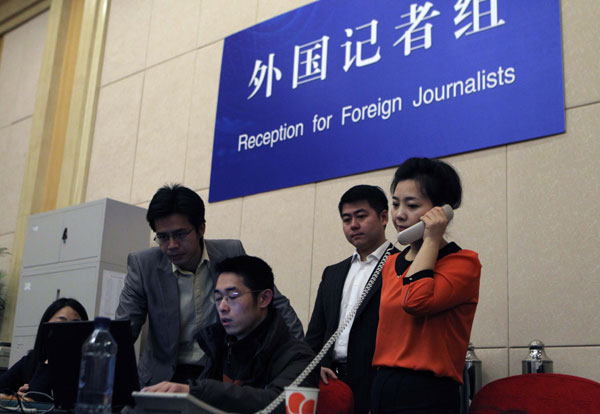Cities need fiscal support in urbanization drive
Updated: 2013-02-27 07:55
By Zheng Yangpeng (China Daily)
|
||||||||
Local governments need political incentives and fiscal support if they are to turn the country's 260 million migrants into urban citizens, as China's urbanization pace gathers steam, experts said.
"The cost will be a huge burden if recipient cities are asked to pay the bill alone," said Feng Kui, a researcher at the China Center for Urban Development under the National Development and Reform Commission.
"Recipient cities and labor-export regions should share the bill, and the central government should coordinate the process."
Vice-Premier Li Keqiang stressed on several occasions recently that urbanization will create China's biggest domestic demand. He said reform of the hukou (household registration) system and the transition of migrant workers into urban citizens are the top priorities.
His calls have also raised the hope that a detailed reform plan will emerge during and after annual meetings of national legislators and political advisers in March.
Social services given to holders of urban hukou, such as social security, public housing and education, are usually better than those given to non-urban hukou holders.
But even though migrants live and work in cities, they usually have non-urban hukou and thus cannot enjoy the same benefits as urban hukou holders.
However, expanding the current social entitlements that urban residents enjoy to the huge number of migrants raises a critical question: Who is going to pay for it?
China's urbanization rate, calculated by the share of people who work and live in cities compared with the total population, rose to 52.6 percent in 2012, according to the National Bureau of Statistics. But only 35 percent of people have an urban hukou. This means that more than 17 percent of China's population, or 260 million people, are working and living in cities but do not have urban hukou.

 Li Na on Time cover, makes influential 100 list
Li Na on Time cover, makes influential 100 list
 FBI releases photos of 2 Boston bombings suspects
FBI releases photos of 2 Boston bombings suspects
 World's wackiest hairstyles
World's wackiest hairstyles
 Sandstorms strike Northwest China
Sandstorms strike Northwest China
 Never-seen photos of Madonna on display
Never-seen photos of Madonna on display
 H7N9 outbreak linked to waterfowl migration
H7N9 outbreak linked to waterfowl migration
 Dozens feared dead in Texas plant blast
Dozens feared dead in Texas plant blast
 Venezuelan court rules out manual votes counting
Venezuelan court rules out manual votes counting
Most Viewed
Editor's Picks

|

|

|

|

|

|
Today's Top News
Boston bombing suspect reported cornered on boat
7.0-magnitude quake hits Sichuan
Cross-talk artist helps to spread the word
'Green' awareness levels drop in Beijing
Palace Museum spruces up
First couple on Time's list of most influential
H7N9 flu transmission studied
Trading channels 'need to broaden'
US Weekly

|

|








